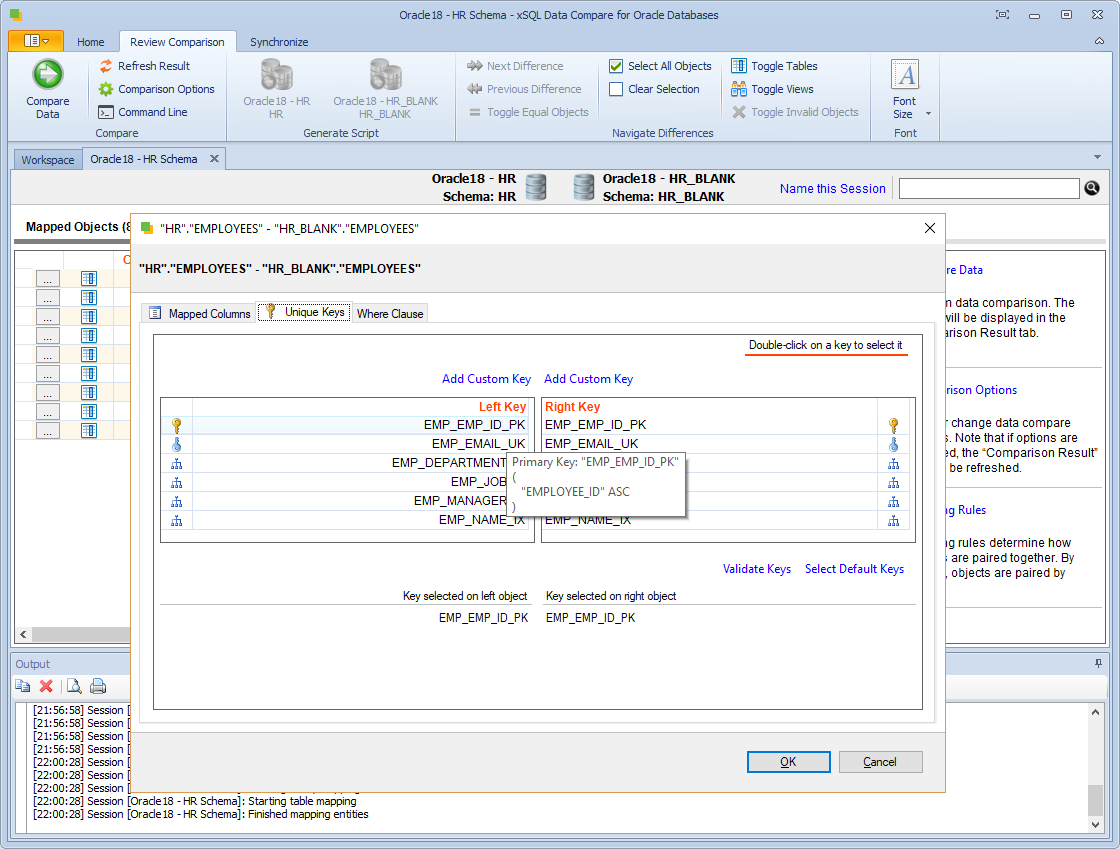The "Unique Keys" tab is divided in two main sections - the top section contains two boxes with the list of unique keys that are potential candidates to be used as the comparison key for each table in the pair.
Initially the boxes contain only the unique keys, such as the primary key, the unique constraints or the unique indexes, that data compare has found for the selected table. You can add your own keys, which can be a combination of columns, on the given table. The bottom section contains a box with the pair of unique keys that have been selected as the key to be used for the data comparison operation.
 |
A user-defined key or a custom key exists only inside data compare. No index or constraint is created on the Oracle table. |
Data Compare picks the comparison key in the following order (whichever is found first):
- User-Defined Key
- Primary Key
- Unique Constraint (the 1st in alpha order)
- Unique Index (the 1st in alpha order)
 |
A user-defined key or a custom key always take precedence over the primary key, unique constraints or unique indexes that might exist on a table. |
When custom keys are selected, you should validate them by clicking on the Validate button. Custom keys are validated as follows:
- Columns in the custom keys must have the same name.
- Columns in the custom keys must have the same data type. Length, scale, precision, nullability and other column properties are not considered.
- The uniqueness of the key is checked only if the option “Check custom key uniqueness”, in the Application Settings form, is on.
To select a key for data comparison, simply double-click on it.

 |
By default, custom keys are checked for type compatibility only. If you wish to check the custom key uniqueness as well, select the option "Check custom keys uniqueness" in the Application Settings. |